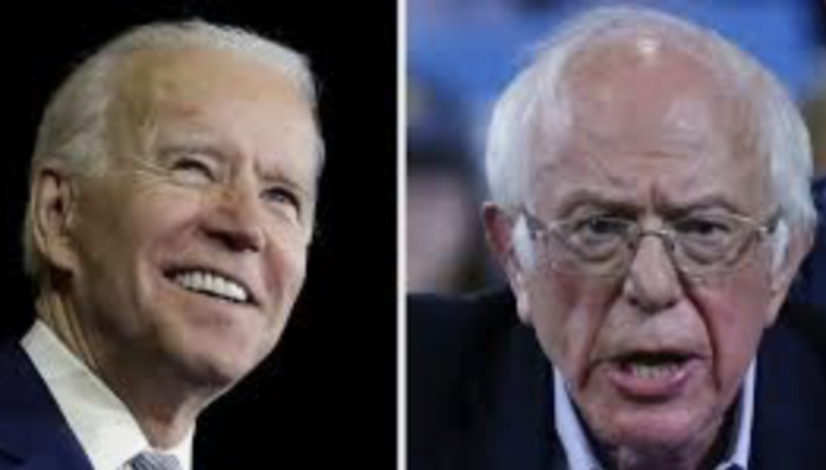Super Tuesday results prove Americans are not ready for a revolution

The results from Super Tuesday are in. Here’s what they tell us:
1) The primary contest is a two-horse race: former Vice President Joe Biden versus Sen. Bernie Sanders, I-Vt.
2) Americans are not ready for a revolution, and they don’t like Fidel Castro. But, Sanders is not going away.
3) The Democratic establishment is so terrified of Sanders that they are propping up Biden, who is frequently “confused.”
4) Ornery, hectoring and broke Sen. Elizabeth Warren, D-Mass., didn’t even win her own state. Will she throw her delegates to Sanders, her philosophical soulmate, or decide to play nice with the Democratic establishment?
5) Turns out: money can’t buy you love. Or votes, except in America Samoa. Former New York City Mayor Mike Bloomberg should drop out. However, with a few delegates and an open checkbook, he will continue to have clout.
6) Democrats are still hoping for a miracle: Is there another candidate out there who can beat Trump? Michelle? Hillary? Anybody?
One of the most-watched aspects of Super Tuesday, with its cornucopia of 1,357 delegates, was how Bloomberg would fare. It was the first time the former mayor of New York City had appeared on any ballots, and the first time Americans would find out whether you can “buy” a nomination.
It turns out, you cannot. The biggest primary night was Bloomberg’s debut; it may also prove to have been his retirement gig, marking one of the shortest presidential campaigns on record. Rumors circulated early Tuesday that if the former New York City mayor did not do well, his campaign advisors would encourage him to pull out. As the votes came in, Kevin Sheekey, his campaign manager, said they would “reassess” his run.
He did not do well. Despite having lavished some $600 million on a suffocating fog of advertisements and also on a massive ground game, the billionaire ex-mayor of New York came up short, winning outright only America Samoa, with its six delegates.
His horrific debate performances were part of the problem, as was his inability to connect with voters. What Bloomberg offered was an open wallet. He was able to buy up staffers and airtime and endorsements, but at the end of the day, there was no passion and little energy. It turns out you have to have more than a high IQ, credible resume and bottomless bank account to inspire voters.
Virginia, the fourth-richest prize of the night with 99 delegates, proves the point. Bloomberg visited the state seven times, spending more time there than any other candidate. He had eight offices in Old Dominion, and more than 80 staffers. He reportedly spent $5.8 million in advertisements in Virginia, compared to less than $200,000 laid out by the Biden campaign.
And yet, Biden took the state with 53.3 percent of the vote, followed by Sanders with 23.1 percent; Bloomberg came in fourth with less than 10 percent. Certainly, Biden scored well with African-American voters, as he did in South Carolina, and enjoyed some momentum from that victory last Saturday.
The biggest story of the night, however, was not the poor showing by Bloomberg, but the recovery by Biden. Exactly one week ago, professionals put the odds of Sanders winning the nomination at 57 percent, compared to 10 percent for Biden. As Super Tuesday dawned, Biden’s chances, compiled by Real Clear Politics, had soared to 59 percent and Sanders’ had plummeted to 37 percent. That’s quite a turnaround.
That change-up was the result of the former Veep’s big win in South Carolina, enthusiastic support from African-Americans, numerous important endorsements and – most important – moderate rivals former South Bend Mayor Pete Buttigieg and Sen. Amy Klobuchar, D-Minn., ending their campaigns.
Nowhere was this more obvious than in Minnesota, Senator Klobuchar’s home state. Biden won that primary with 39 percent of the vote. Two weeks ago, Klobuchar polled at 29 percent, with Buttigieg claiming another 3 percent and Joe only 8 percent. If those two moderate rivals had not pulled out, Biden would have lost to Sanders, who took 30 percent of the votes last night.
Biden outperformed in several important states, including delegate-rich Texas, where he won by a narrow margin, boosted perhaps by the support of former Rep. Beto O’Rourke, D-Texas, as hard as that is to imagine. Sanders, who scored well with Hispanics in his blow-out victory in Nevada, was favored in the race.
The granddaddy prize of the night – California – went to Sanders by a substantial margin, giving him 72 delegates. His popularity with young Hispanics no doubt helped. That California saw a sizeable amount of early voting means the outcome might not have been as swayed by Biden’s last-minute momentum.
Sanders will remain a thorn in the side of Democrats all the way to the Milwaukee convention. No one will likely reach the magic number of 1,991; we are headed to a brokered convention, and that could be a massive food-fight, depending on the outcome of upcoming races.
It is clear that moderate Democrats – that is, those who actually want to beat Donald Trump in November rather than pursue a Quixote-like tilt against injustice and corporate greed – will back Biden over Sanders. It is also clear that Sanders’ claim of assembling a new and powerful coalition flunked the test.
The aging socialist argues that the way to beat Trump is by generating the “largest turnout in American history.” But that hasn’t happened so far. On Super Tuesday exit polls showed that young voters – Bernie’s core group – did not show up in the numbers they had in 2016. Without a doubt, that hurt Sanders.
It is still a race, but Super Tuesday was for sure a good night for Biden. It was also a good night for sanity, for our country and for Donald Trump. It is hard to imagine “Sleepy Joe”, as Trump calls him, generating the excitement and turnout needed to beat the president.
Published on Foxnews.com




